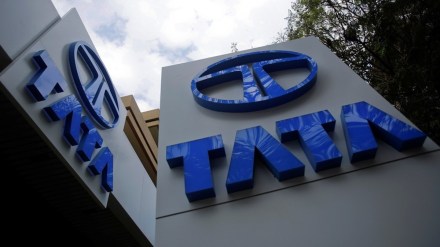Tata Motors, now operating solely as the automaker’s commercial vehicle arm following its demerger from the passenger vehicle business, on Thursday reported a consolidated net loss of Rs 867 crore for the July-September quarter, against a net profit of Rs 498 crore in the same quarter a year earlier. The company attributed the net loss largely to mark-to-market losses linked to its newly listed investments in Tata Capital.
The earnings announcement came a day after the company’s shares debuted on the bourses, formally completing the separation of the commercial and passenger vehicle entities.
Revenue from operations rose 6% year-on-year to Rs 18,585 crore compared with Rs 17,535 crore in the corresponding quarter of FY25. Expenses rose more than 15% to Rs 19,296 crore during the period.
The company remains optimistic about the second half of the fiscal year. With the festive season underway and the full impact of ongoing GST reforms still unfolding, Tata Motors expects momentum to build across key commercial vehicle segments. The company said that activity in construction, infrastructure, and mining is set to intensify in the months ahead, creating a favourable environment for demand growth in trucks, tippers, and other heavy-duty vehicles.
Management said the business is supported by a strong pipeline of upcoming launches and an increasingly customer-aligned product mix. The company believes these factors place it in a strong position to accelerate growth and lift market share across categories. It reiterated its commitment to profitable expansion, with the aim of sustaining double-digit Ebitda margins, generating strong cash flows, and delivering high returns on capital employed.
Calling the company’s listing a historic milestone, Managing Director and CEO Girish Wagh said the second quarter demonstrated resilience despite market volatility. He said that the rollout of GST 2.0 reforms, combined with festive-season sentiment, helped spark a recovery in volumes, which grew 12% year-on-year. According to Wagh, improved product availability, sharper pricing actions, and increased market engagement contributed to the uptick.
Wagh added that the company expects the momentum to carry through the second half of FY26, supported by steady demand from core infrastructure-led sectors.
On the acquisition of IVECO, announced on July 30, Tata Motors said the process is progressing as planned, with regulatory approvals underway. The acquisition is expected to be completed by April next year.
Addressing a query on CAFE norms, Wagh stated that the commercial vehicle industry has reached a consensus across all segments. In the MHCV segment, the Society of Indian Automobile Manufacturers (Siam) has recommended to the Bureau of Energy Efficiency (BEE) and the Ministry of Road Transport and Highways (MoRTH) to adopt the Bharat Vecto system instead of constant-speed fuel consumption norms.
“Bharat Vecto is a vehicle energy consumption tool that realistically represents actual fuel usage and CO₂ emissions. We believe this proposal will be viewed favourably by the government,” Wagh added.
For the light commercial vehicle (LCV) segment, Wagh said the industry has requested exemption for the N1 category from CAFE norms, as fuel consumption in this segment accounts for less than 2% of total national fuel use and less than 1% of CO₂ emissions.
